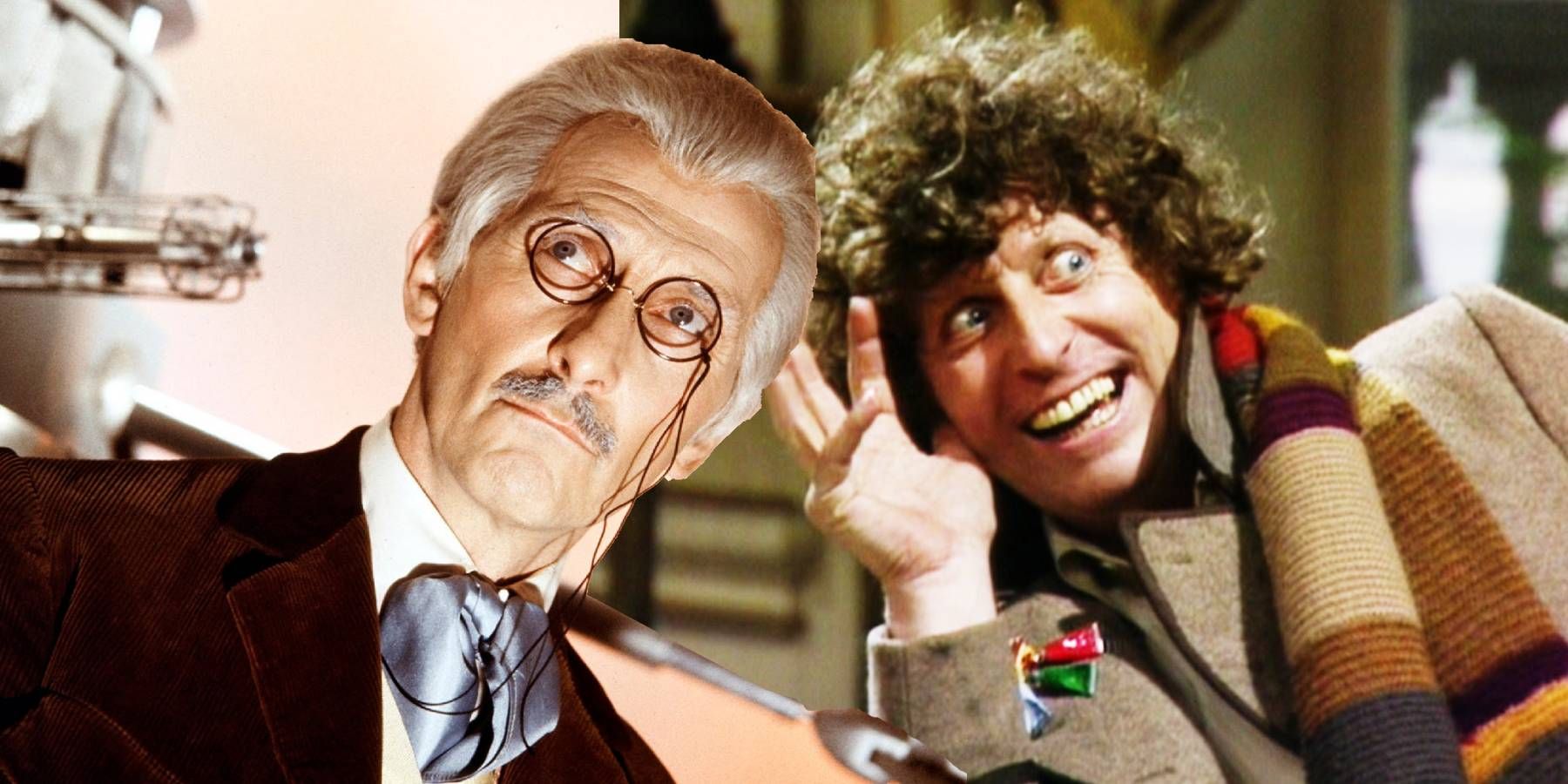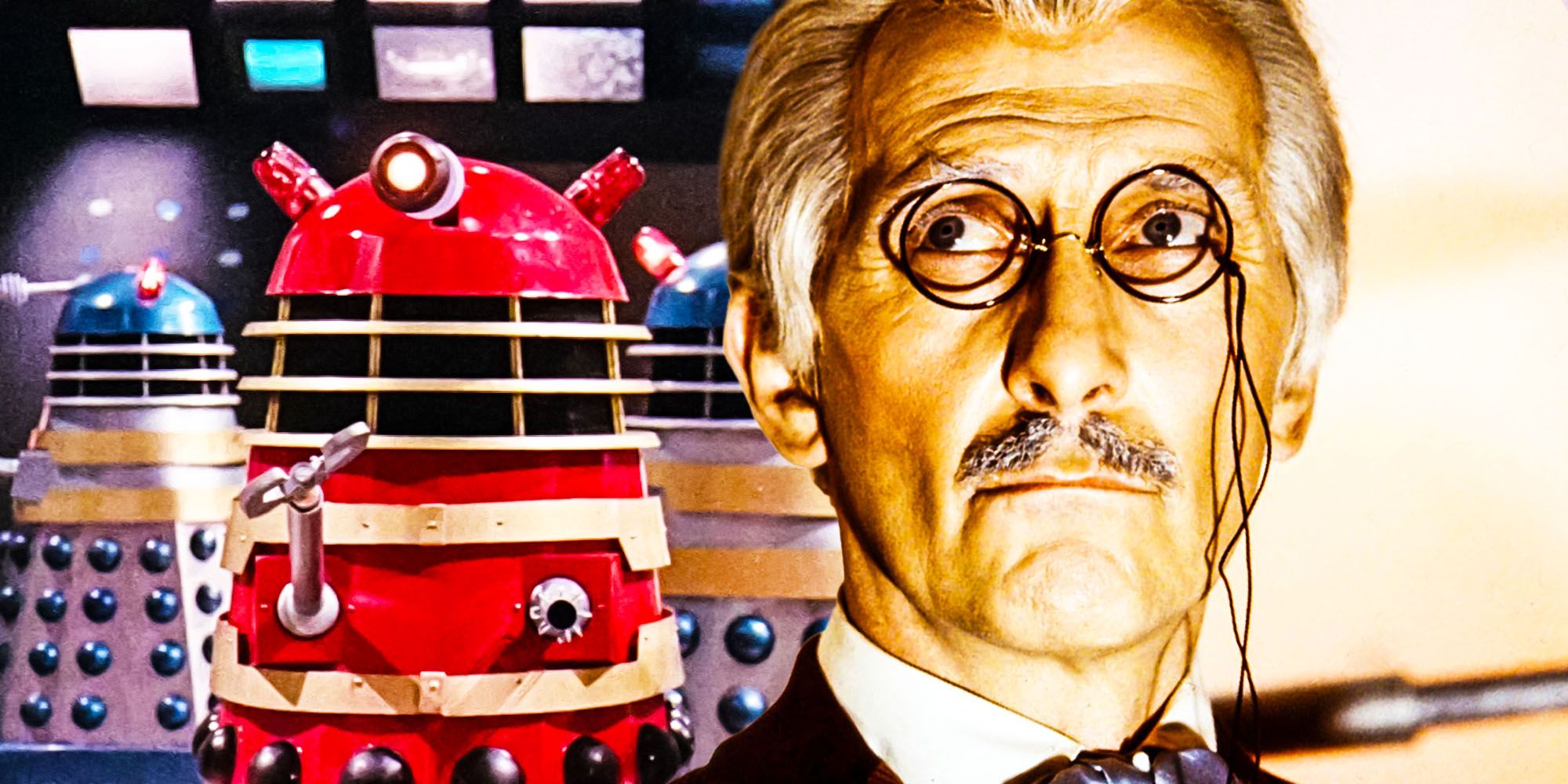A presumed-to-be-lost script for a third Doctor Who movie has been rediscovered, creating several potential canon issues for both the Peter Cushing movies and the parent TV show. Adapted from Terry Nation's first two Dalek serials and starring horror legend Peter Cushing as Doctor Who, the movies were released in 1965 and '66, capitalizing on the Dalekmania craze. They existed separately from the world of the TV show, but in later years writer Steven Moffat attempted to canonize them in his novelization of the 50th anniversary special "The Day of the Doctor."
At an event in London to promote the 4K re-release of Peter Cushing's Doctor Who movies, their writer-producer Milton Subotsky's sons revealed they were in possession of a speculative script for a third Doctor Who movie. Entitled Doctor Who's Greatest Adventure, the script was written in the 1980s and would feature an old Doctor and a young Doctor teaming up together. While this is a concept that now regularly recurs throughout Doctor Who, it would have raised some even more complex canon issues than the first two Cushing movies.
The most notable thing about the two Peter Cushing movies is that his Doctor is not a Timelord. He's an eccentric human scientist who has invented time travel and lives with his granddaughters Susie and Barbara Who. Doctor Who's humanity would presumably remove the possibility of regeneration. Although, given Doctor Who's Timeless Child revelations, this could now be easily remedied. Perhaps Peter Cushing's Doctor Who is another timeless Doctor, living an incognito life as an impossibly clever human scientist. In the 1980s, Peter Cushing's Doctor could only have met a younger version of himself through the use of time travel. However, Milton Subotsky's third Doctor Who movie may not have featured Cushing at all, with the writer-producer instead stating a preference for casting either Tom Baker or Jon Pertwee as the Doctor. The involvement of one of the classic TV Doctors in a Subotsky movie would have created a whole other canon headache.
Dr. Who and the Daleks and its sequel Dalek Invasion Earth 2150 AD were divorced from the continuity of the TV show, as was the lost Peter Cushing Doctor Who radio pilot. Without the involvement of the original Doctor William Hartnell, it's easy to buy the movies as an alternate movie version of Doctor Who. Movie remakes of TV shows were a big part of the British film industry's output during the '60s and '70s, so nobody would have thought anything of it. However, by the 1980s, fandom had really taken off, and Doctor Who had become a national institution thanks to the iconic portrayals of both Pertwee and Baker.
For either actor to be involved in the movie would have signaled a clear connection with the TV series that would raise all sorts of questions as to where the movie fits in either Doctor's continuity - that's if the movie would have even been properly sanctioned by the BBC. As the 1980s wore on, Doctor Who faced cancellation, and it's unlikely that the publicly funded broadcaster would have seen - or even been allowed to pursue - the commercial potential of Subotsky's movie. It's therefore likely that if Doctor Who's Greatest Adventure had gone ahead, pitting Tom Baker and a new, young Doctor against giant crabs would have become the Doctor Who equivalent of Sean Connery's rights-skirting unofficial Bond movie Never Say Never Again. Whatever would have happened, Doctor Who's Greatest Adventure is a fascinating curio and one that will hopefully see the light of day as a novel, script book, or Big Finish audio drama in years to come.


